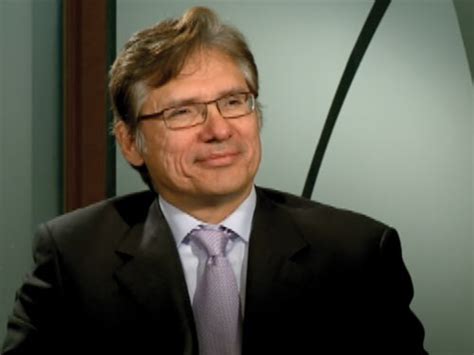A Quote by Dalai Lama
However capable and skillful an individual may be, left alone, he or she will not survive. When we are sick or very young or very old, we must depend on the support of others. There is no significant division between us and other people, because our basic natures are the same. If we wish to ensure everyone's peace and happiness, we need to cultivate a healthy respect for the diversity of our peoples and cultures, founded on an understanding of this fundamental sameness of all human beings.
Quote Topics
Alone
Basic
Because
Beings
Between
Capable
Cultivate
Cultures
Depend
Diversity
Division
Ensure
Everyone
Founded
Fundamental
Happiness
He Or She
Healthy
However
Human
Human Being
Human Beings
Individual
Left
Left Alone
May
Must
Natures
Need
Old
Other
Others
Our
Our People
Peace
Peace And Happiness
People
Respect
Same
Sameness
She
Sick
Significant
Skillful
Support
Survive
Understanding
Us
Very
Will
Wish
Young
Related Quotes
Because we all share an identical need for love, it is possible to feel that anybody we meet, in whatever circumstances, is a brother or sister. No matter how new the face or how different the dress and behavior, there is no significant division between us and other people. It is foolish to dwell on external differences, because our basic natures are the same.
No matter what part of the world we come from, we are all basically the same human beings. We all seek happiness and try to avoid suffering. We have the same basic human needs and concerns. All of us human beings want freedom and the right to determine our own destiny as individuals and as peoples. That is human nature.
?Interdependence is a fundamental law of nature. Even tiny insects survive by mutual cooperation based on innate recognition of their interconnectedness. It is because our own human existence is so dependent on the help of others that our need for love lies at the very foundation of our existence. Therefore we need a genuine sense of responsibility and a sincere concern for the welfare of others.
At a fundamental level, as human beings, we are all the same; each one of us aspires to happiness and each one of us does not wish to suffer. This is why, whenever I have the opportunity, I try to draw people's attention to what as members of the human family we have in common and the deeply interconnected nature of our existence and welfare.
Creating harmony amidst diversity is a fundamental issue of the twenty-first century. While celebrating the unique characteristics of different peoples and cultures, we have to create solidarity on the level of our common humanity, our common life. Without such solidarity, there will be no future for the human race. Diversity should not beget conflict in the world, but richness.
Human beings are not intrinsically selfish, which isolates us from others. We are essentially social animals who depend on others to meet our needs. We achieve happiness, prosperity and progress through social interaction. Therefore, having a kind and helpful attitude contributes to our own and others' happiness.
What is important is to realize that whether we understand fully who we are or what will happen when we die, it's our purpose to grow as human beings, to look within ourselves, to find and build upon that source of peace and understanding and strength that is our individual self. And then to reach out to others with love and acceptance and patient guidance in the hope of what we may become together.
We human beings are social beings. We come into the world as the result of others’ actions. We survive here in dependence on others. Whether we like it or not, there is hardly a moment of our lives when we do not benefit from others’ activities. For this reason, it is hardly surprising that most of our happiness arises in the context of our relationships with others.
The question of real, lasting world peace concerns human beings, so basic human feelings are also at its roots. Through inner peace, genuine world peace can be achieved. In this the importance of individual responsibility is quite clear; an atmosphere of peace must first be created within ourselves, then gradually expanded to include our families, our communities, and ultimately the whole planet.
We cannot allow some people to be left at the back of the human rights bus... We must ensure the rights of individual groups or people -be they indigenous peoples, or peoples of Asian or African or American descent, or Jews or Muslims- are not sacrificed on an altar of progress for some while there are setbacks to others.
It's a bit counter-intuitive to think about the future in terms of the past. But...I've learned an important trick: to develop foresight, you need to practice hindsight. Technologies, cultures, and climates may change, but our basic human needs and desires - to survive, to care for our families, and to lead happy, purposeful lives - remain the same.' p 5
Being concerned about other people is especially relevant in today's world. If we consider the complex inter-connected ness of our modern lives, how we depend on others and others depend on us, our outlook will change. We’ll begin to see 'others' not as somehow distant from us, but as people we are in touch with, people close to us; we will no longer feel indifferent to them.
We must embrace our differences, even celebrate our diversity. We must glory in the fact that God created each of us as unique human beings. God created us different, but God did not create us for separation. God created us different that we might recognize our need for one another. We must reverence our uniqueness, reverence everything that makes us what we are: our language, our culture, our religious tradition.































